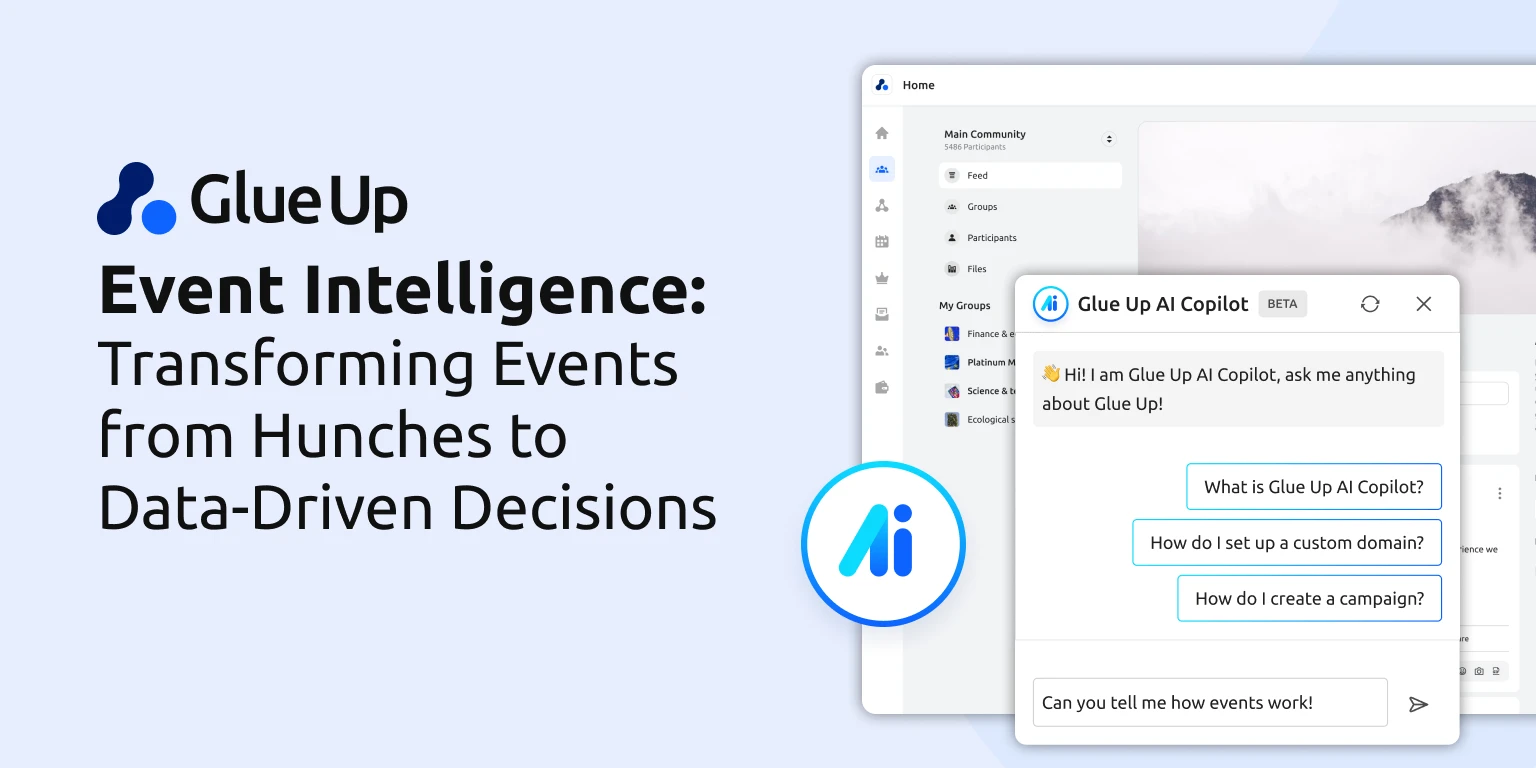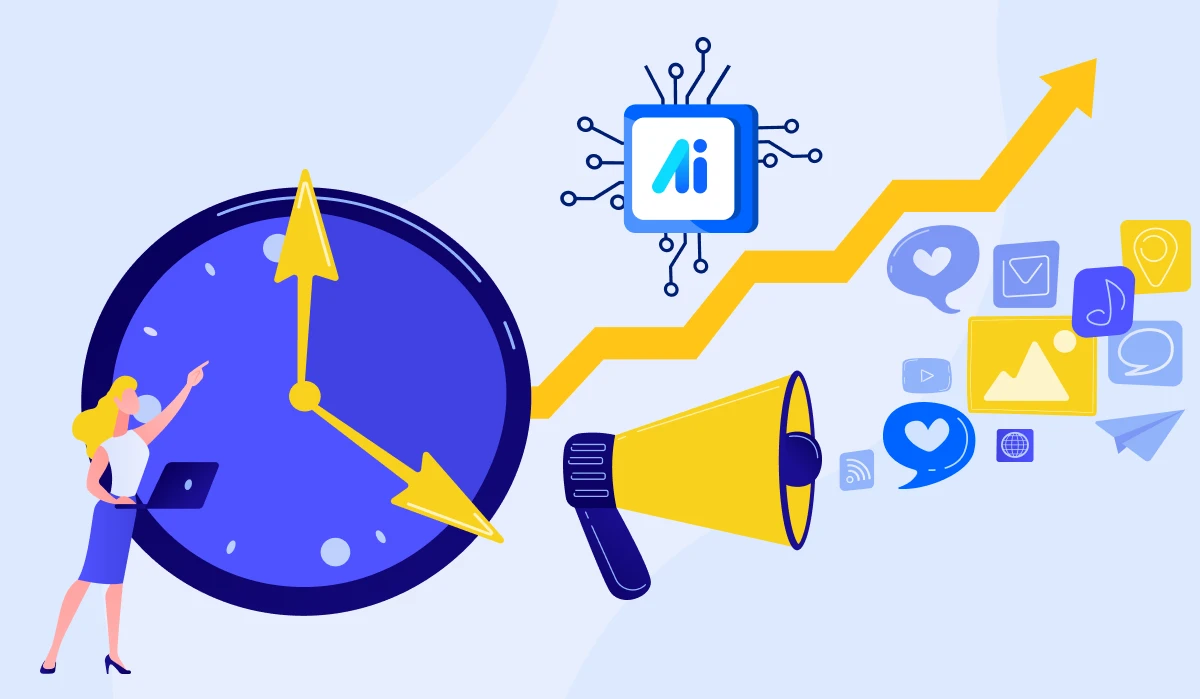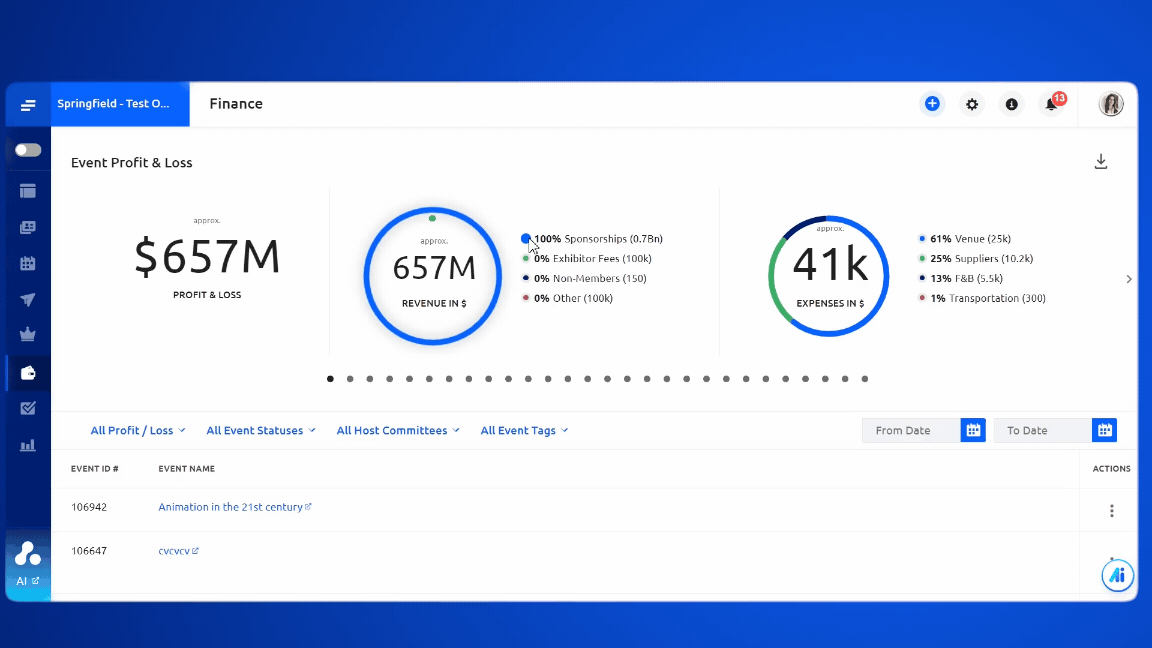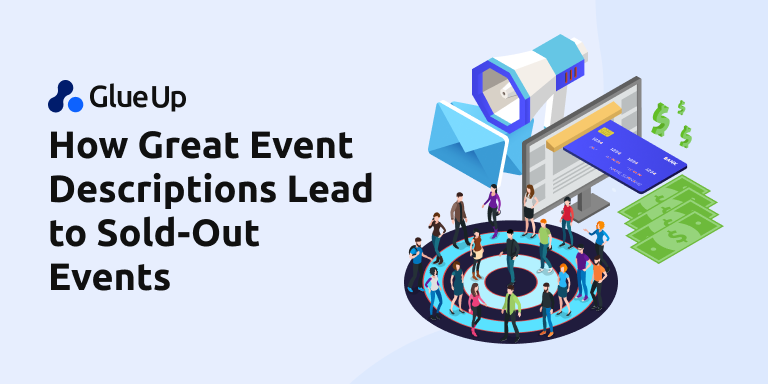
Events are the driving force of associations, nurturing connections, sparking business deals, and serving as a platform to showcase your value. However, many associations struggle with events that don't deliver, often due to a lack of data-driven planning.
A careful analysis of member demographics, attendees’ turnout, engagement history, and feedback would help you craft compelling events with targeted content, speaker selection, location, and timing. Later on, you can track attendance, engagement, and post-event feedback to measure success and refine your approach.
Moreover, you may utilize data to understand your members, curate resonated events, and turn them into powerful tools for member engagement, professional development, and overall organizational success.
If you make decisions backed by data, you will ditch guesswork and turn your events into roaring successes. This blog is all about transforming your event into a major success using data-driven strategies. Read on to learn how to achieve this success.
Key Takeaways
- Collecting and analyzing event data helps associations make informed decisions, creating more engaging and effective events.
- Data guides event planning boost engagement, increases ROI, and personalizes attendee experiences, replacing guesswork with strategic planning.
- AI, IoT, and data privacy are key trends enhancing data collection, attendee experiences, and compliance with regulations.
- Start with clear goals, identify relevant data, invest in technology, partner with data experts if needed, and share insights with stakeholders.
- Glue Up supports event intelligence with tools like event websites, online ticketing, surveys, live analytics, and more, helping organizations create successful events.
What is Event Intelligence, and Why Does it Matter?

According to reports, 89% consider events critical to reaching key business objectives. If events are that important, their data should be utilized to bring more impactful results for associations. This is where event intelligence comes in.
Event intelligence means unlocking valuable insights from the treasure of data your events generate. It involves collecting, analyzing, interpreting, and utilizing data related to your events. The data can come from various sources, such as registrations, attendee behavior, website interactions, surveys, and social media.
Harnessing this data will also help you gain a deeper understanding of your audience, their preferences, and the overall effectiveness of your events.
Here's why event intelligence matters:
- Improved Decision Making: Event intelligence allows you to base your event planning entirely on concrete data, identify what resonates with attendees, and tailor future events for maximum impact. This is crucial because 19% of event marketers lack the right data to make informed decisions, and utilizing event intelligence confirms you won’t be among them.
- Boosted Engagement: You will gain insights into what keeps attendees engaged and what causes them to drop off. This knowledge can be used to create a more interactive and satisfying experience. Over 82% of B2B marketers consider attendee engagement a key performance indicator for determining an event's impact. Therefore, finding ways to boost attendee engagement is essential, and event intelligence excels in this area.
- Increased ROI: Metrics like cost-per-lead and attendee conversion rates help you optimize your budget and maximize the return on your event investment. Fifty-two percent of businesses believe that events provide the greatest ROI compared to other marketing channels. With such a strong belief in the ROI generated from events, event intelligence plays a crucial role in enhancing this ROI even further.
- Personalized Experiences: You can leverage data to personalize the attendee journey. Based on individual preferences, you can cater content recommendations, networking opportunities, and overall experience.
- Future-Proofing your Events: Event intelligence lets you stay ahead of the curve by identifying trends and attendee expectations. Use these insights to continuously improve your events and stay relevant in the evolving event domain.
Overall, event intelligence empowers you to transform your events from one-size-fits-all gatherings to strategic touchpoints that promote meaningful connections, drive engagement, and achieve your event goals. It's the key to unlocking your events' true potential and turning them into resounding successes.
Event Intelligence in Action: The Latest Trends and Developments
Event intelligence is no longer a futuristic concept; it's the driving force behind successful events in today's data-centric world. Here's a glimpse into the exciting trends and developments shaping the future of event intelligence:
The Rise of Artificial Intelligence (AI)
Like other fields, AI is making its mark on event intelligence. Reports suggest that 61% of event technology companies offer at least one AI-powered feature, with matchmaking being the most common application.
AI is transforming events in remarkable ways, particularly in how we collect, analyze, and utilize data. AI-powered tools automatically analyze audience behavior patterns, predict areas for improvement, and personalize content recommendations, demonstrating the power of AI in action.
Additionally, AI can streamline data analysis, saving time and resources for event planners.
The Integration of the Internet of Things (IoT)
The integration of the Internet of Things (IoT) in events is transforming the industry. IoT devices, such as smart badges and wearable tech, track attendee movements and interactions in real-time, providing valuable data on engagement and preferences.
The information collected from such gadgets allows event planners to optimize venue layouts, enhance attendee experiences, improve crowd management, and personalize marketing efforts.
Additionally, IoT can streamline check-in processes, facilitate networking opportunities, and provide real-time feedback to organizers. Leveraging IoT technology assists planners in making events more interactive, efficient, and tailored to individual needs.
Focus on Data Privacy
As data collection becomes more sophisticated, data privacy remains important. Event organizers must prioritize transparent data practices and verify compliance with relevant regulations. Building trust with attendees by clearly outlining how their data is used is crucial.
Moreover, this focus on data privacy provides a secure environment where attendees feel comfortable engaging with event technology.
These trends highlight the dynamic nature of event intelligence. Embracing these advancements equips event planners to unlock a deeper understanding of their audience, personalize the attendee experience, and, ultimately, create events that deliver measurable results.
Demystifying Event Intelligence: Answering Your Burning Questions
Event intelligence might sound complex, but it's a powerful tool that can be surprisingly accessible. Let's address some common questions to clear the air:
Is Event Intelligence a New Concept?
While the term itself might be recent, the core principle of using data to understand events has been around for years. Previously, it might have involved analyzing paper surveys or tracking attendance numbers. Today, technology allows for more sophisticated data collection and analysis, leading to a more comprehensive understanding of event effectiveness.
Do I Need a Special Event Intelligence Tool?
Not necessarily. Even basic data collection methods, like online surveys and registration forms, can provide valuable insights. However, dedicated event intelligence tools can significantly enhance your capabilities. These tools automate data collection, offer advanced analytics features, and provide insightful reports. Ultimately, the choice depends on the size and complexity of your events and your budget.
Who Can Benefit From Event Intelligence?
Event intelligence benefits a wide range of event organizers, regardless of the event type. Here are some examples:
- Conferences and trade shows: Track attendee engagement with booths, sessions, and networking events to optimize future offerings.
- Webinars and online events: Analyze attendee behavior and content engagement to improve the virtual experience.
- Association and chamber events: Gain insights into member preferences and tailor events to their specific needs.
- Corporate events: Track employee engagement and measure the success of internal training programs or team-building activities.
Event intelligence empowers anyone involved in organizing events to make data-driven decisions, improve the attendee experience, and more effectively achieve their event goals.
Event Intelligence: Practical Tips for Success

Ready to utilize the power of event intelligence and take your events to the next level? Here are some practical tips to guide you:
Start with Clear Goals
Before collecting data, define your event goals. Are you aiming to boost attendee engagement, generate leads, or promote the association`s brand awareness? Understanding your objectives helps determine the most relevant data points to track.
Identify the Right Data Points
Don't get overwhelmed by data overload. Choose data points that directly correlate with your goals, which might include registration data, session attendance, website interactions, survey responses, or social media mentions.
Invest in the Right Technology
Basic data collection methods have value, so consider investing in event intelligence tools. These tools automate data collection, streamline analysis, and offer insightful reports. Choose a solution that aligns with your budget and event complexity.
Partner with a Data Expert
If your team lacks extensive data analysis experience, consider partnering with a data expert. They can help you interpret complex data sets and translate insights into actionable recommendations.
Communicate Effectively
Data is powerful, but it's only valuable if it's used. Share your event intelligence findings with your team and stakeholders. Communicate key takeaways and utilize insights to guide future event planning decisions.
Following these tips, you can transform event intelligence from a complex concept into a practical tool for creating impactful and successful events. Remember, data is just the beginning. You can translate insights into action that will truly elevate your events and achieve your desired outcomes.
Make Data-Driven Decisions: Event Intelligence Made Easy with Glue Up

Event intelligence depends on the quality of your event management software. If it accurately records all the data and provides precise metrics, it’s effective. However, if it doesn't, no matter how much event intelligence you implement, you can't improve your results.
Speaking of event management software, let's discuss one of the best: Glue Up. This all-in-one event management software ensures your events are always successful and offers numerous features that enhance event intelligence.
Let’s explore these features:
Event Website Builder & Blueprints
You can easily create professional, customized event websites, and this feature helps capture attendee interest and collect registration data, providing valuable insights into attendee demographics and preferences.
Online Ticketing & Payments
Glue Up provides an integrated online system that simplifies ticket sales and payments. This allows you to track sales trends, understand peak purchasing times, and gather data on attendee preferences, aiding in more accurate event forecasting.
Event Surveys
You can also gather feedback from attendees before, during, and after the event. These surveys provide informational insights into attendee satisfaction, areas for improvement, and the overall effectiveness of your event, helping you make data-driven decisions.
Built-in Ticket Scanner
Streamline the check-in process with a built-in ticket scanner with Glue Up and track attendance in real-time, providing immediate data on participant numbers and entry times that can be used to optimize event flow and security.
Live Engagement Analytics
Monitor attendee engagement during the event with live analytics. This feature offers real-time data on session attendance, participation rates, and engagement levels, enabling you to adjust activities and content on the fly for maximum impact.
Event Documents
Easily share important documents and materials with attendees. Tracking which documents are accessed and downloaded allows you to gain insights into your attendees' interests and needs, allowing for more tailored content in future events.
Event Room:
Manage virtual event rooms effectively. This feature provides data on room usage, occupancy rates, and attendee movement, helping you optimize space and resources for better event management.
Glue Up has been used by many associations to streamline their event management and enhance engagement. If you want to know more about how it can support your needs, consider booking a demo today.



